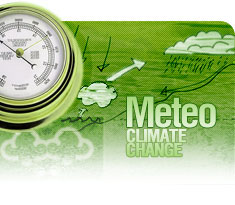http://www.nytimes.com/2009/12/07/opinion/07mon1.html?hp
Nobody should expect a planet-saving agreement from the negotiations that begin this week in Copenhagen aimed at reducing global emissions of greenhouse gases. But the talks were in real danger of blowing up not long ago. Now there is a good chance for at least an interim deal, mainly because the United States and China, the world’s two biggest emitters, have promised to reduce or slow their emissions and their two leaders have agreed to attend.
Nobody should expect a planet-saving agreement from the negotiations that begin this week in Copenhagen aimed at reducing global emissions of greenhouse gases. But the talks were in real danger of blowing up not long ago. Now there is a good chance for at least an interim deal, mainly because the United States and China, the world’s two biggest emitters, have promised to reduce or slow their emissions and their two leaders have agreed to attend.
An interim deal would still leave a great deal for President Obama to do, starting with getting Congress to deliver on the promises he is taking to Copenhagen. Mr. Obama has pledged a modest cut of 17 percent over the next 10 years and more aggressive cuts in later decades. Prime Minister Wen Jiabao’s proposal to slow the growth in China’s emissions is considerably less ambitious because energy efficiency measures that China has already put in place should be enough to do the job.
Still, neither country has offered specific goals before. Their 11th-hour willingness to do so could be just enough to persuade the other 190 countries in Copenhagen to take the first step in what is now seen as a two-stage process. It would start with a nonbinding political agreement to reduce emissions and give aid to developing countries. This would be followed by a legal agreement next year with firm targets, enforcement mechanisms and specific dollar amounts for poorer countries.
In other words, the tough slog lies ahead. Copenhagen is all about attitudes and aspirations. Next year will be about results. And there can be no meaningful outcome without the leadership of the United States — second only to China in overall emissions and the biggest emitter by far in terms of per capita emissions.
The president’s proposed reductions are in line with a bill approved by the House last summer. A Senate committee has approved a slightly stronger measure calling for a 20 percent reduction in the next decade and an 83 percent reduction by midcentury. But its approval on the Senate floor is far from certain. Most Republicans are opposed. There are deep doubts among Democrats from Rust Belt states with energy-intensive industries. Getting to a filibuster-proof 60 votes will require every bit of Mr. Obama’s persuasive powers — and a real push by the Senate’s often-passive Democratic leaders.
The challenges on the foreign front are no less formidable. The consensus among mainstream climate scientists is that the world must cut emissions in half by midcentury. The rich countries cannot do it alone. Even if they cut their emissions by 80 percent by midcentury — a goal endorsed by the Group of 8 highly industrialized nations — the world would fall short of its target unless the developing countries pitched in.
Brazil, Indonesia and India have put offers on the table; others may come forward now that China has agreed to act. But the divide between rich and developing nations, let alone very poor countries, remains great. Further progress may depend on how much countries that have already reaped the benefits of industrialization — and contributed hugely to global warming — will be willing to ante up to help others adapt to climate change and reduce emissions. Brazil, for instance, has said it will protect its rainforests from clear-cutting and burning only if rich countries “pay the price.”
European leaders have urged the creation of a global climate assistance fund for exactly that purpose, with a minimum annual contribution from wealthy countries of $10 billion. The White House announced late last week that the United States would pay its “fair share.” That is good news. But here again the president will need Congress’s consent. He has a huge selling job ahead if he expects to seal a comprehensive deal.
|



 Română
Română English
English


